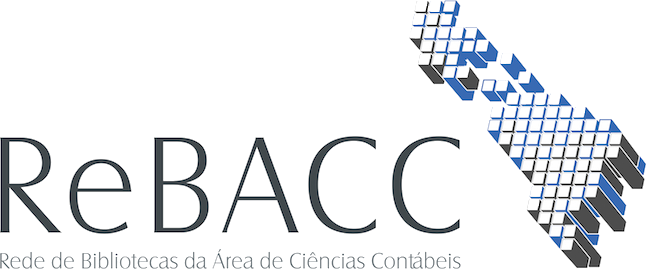Use este identificador para citar ou linkar para este item:
http://rebacc.crcrj.org.br/handle/123456789/7028| Título: | PIS/PASEP, COFINS e EFD-contributions: application of legislation in tax accounting - perceptions of tax specialists PIS/PASEP, COFINS E EFD-CONTRIBUIÇÕES: APLICAÇÃO DA LEGISLAÇÃO NA CONTABILIDADE TRIBUTÁRIA - PERCEPÇÃO DE ESPECIALISTAS EM TRIBUTOS |
| Palavras-chave: | PIS/Pasep. Cofins. EFD. Contributions. Tax. PIS/Pasep. Cofins. EFD. Contribuições. Tributos. |
| Editora / Evento / Instituição: | AnpCONT |
| Descrição: | The main objective of this study is to analyse the perception of tax specialists on the application of PIS/Pasep, Cofins and EFD-Contributions legislation in Tax Accounting. The study uses the hypothetical-deductive method, descriptive, bibliographical and field research and data collection through a questionnaire. The results show that tax specialists exhibited agreement bias that the tax obligations are impaired by excessive rules in the legislation (83%); by difficulty of interpreting the law (80%); by dispersion of information (80% ); by legislation complexity (94%); by the law frequently updating (98%); by the variety of schemes, tax rates and special situations (78%); by legal acts with immediate enforcement (80%) and by the input concept (83%). Regarding the EFD-contributions, the study records agreement bias to the statement that compliance with the tax obligation will require more knowledge (80%); it will take longer (74%) and it will be more complex (87%). Additionally, the study registers agreement bias that the legislation complexity creates additional costs for entities (85%) and to the statement that expansion of the input concept by Administrative Board of Tax Appeals - CARF facilitates the fulfillment of the tax (63%). The bibliographical research was confirmed in the field research by the perception of tax specialists, indicating urgent need to review the structure of the legislation related to PIS/Pasep and Cofins to make it fair to taxpayers and convenient for application in Tax Accounting. O objetivo principal deste estudo é analisar a percepção de especialistas em tributos sobre a aplicação da legislação do PIS/Pasep, da Cofins e da EFD-Contribuições na Contabilidade Tributária. A pesquisa se utiliza do método hipotético-dedutivo sendo descritiva, bibliográfica e de campo com coleta de dados por questionário. Os resultados demonstram que especialistas em tributo apresentam viés de concordância à afirmativa de que o cumprimento das obrigações tributárias é prejudicado pelo excesso de normas na legislação (83%); pela dificuldade de interpretação da legislação (80%); pela dispersão da informação (80%); pela complexidade da legislação (94%); pelas frequentes atualizações na legislação (98%); pela variedade de regimes, alíquotas e situações especiais (78%); por atos legais com aplicação imediata (80%); e pelo conceito de insumo (83%). Quanto EFD-Contribuições, registra-se viés de concordância à afirmativa de que o cumprimento da obrigação tributária demandará mais conhecimento (80%); muito mais tempo (74%); e que será mais complexa (87%). Adicionalmente, registra-se viés de concordância à afirmativa de que a complexidade da legislação gera custos adicionais para entidades (85%); e para afirmativa de que a ampliação do conceito de insumo pelo Conselho Administrativo de Recursos Fiscais - CARF facilita o cumprimento da obrigação tributária (63%). Os elementos destacados na pesquisa bibliográfica como os que geram impactos são ratificados na pesquisa de campo pela percepção de especialistas em tributos indicando que urge revisar a estrutura da legislação referente ao PIS/Pasep e à Cofins para torná-la justa a contribuintes e conveniente para aplicação na Contabilidade Tributária. |
| URI: | http://rebacc.crcrj.org.br/handle/123456789/7028 |
| Outros identificadores: | http://asaa.anpcont.org.br/index.php/asaa/article/view/102 |
| Aparece nas coleções: | Revista ASAA |
Arquivos associados a este item:
Não existem arquivos associados a este item.
Os itens no repositório estão protegidos por copyright, com todos os direitos reservados, salvo quando é indicado o contrário.

